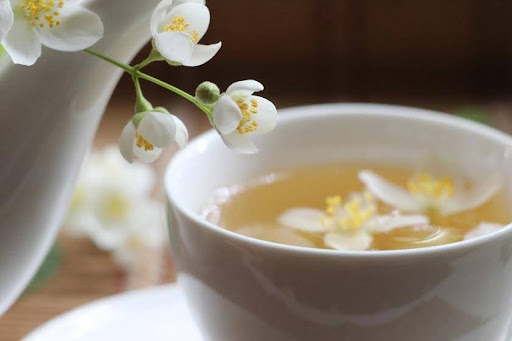How Important Are Hobbies in Life?
Time is a precious commodity, and many lead hectic, overscheduled lives. So after a long day, nothing sounds better than settling in front of the television.
However, we might be spending our time more productively elsewhere. It may seem like we don’t have time for hobbies, but research suggests that engaging in such activities early can help delay the onset of dementia like Alzheimer’s.
Engaging in a hobby has been linked to better brain health. According to research published in Psychology Today, regular hobby practice (at least an hour per day) may reduce the risk of developing Alzheimer’s disease in old age. Participating in enjoyable activities may also help you age more gracefully. One study from 2016 indicated that those with no interests or a sense of purpose in life are more likely to die prematurely and have difficulty doing basic tasks of daily living.
What Do Hobbies Do?
Engaging in a hobby has been shown to improve both mental and emotional health. Enjoyable time can be spent on a hobby. They benefit one’s emotional well-being, social life, and physical health. Hobbies, including the arts, allow one to express oneself and work through thoughts and feelings in a safe and nonjudgmental environment.
Better quality of life, self-respect, happiness, increased interest in new things, and improved attention were all observed to increase in a study of people with dementia conducted in 2011.
According to the National Institute on Aging, memory, creativity, and the ability to solve problems are all boosted by participating in artistic pursuits. Artistic pursuits range from sketching to coloring, weaving, knitting, and making handcrafted jewelry with metal beads and findings.
Don’t worry if you’re reading this and don’t have any interest at the moment. Taking up a new interest is a great way to keep your mind active. Taking up a new pastime is a great way to broaden your horizons and improve your employability. Don’t forget to keep up your social life. Sharing your passions with others is just one of the many benefits of maintaining positive social relationships.
Community service, signing up for language classes, photography, pet care, yoga, swimming, gardening, and even playing cards (or tabletop RPG) are all excellent activities to consider. According to the Alzheimer’s Association, increased blood and oxygen flow through physical activity can achieve better brain health. Walking is an excellent kind of exercise.
If you or a loved one have recently been diagnosed with Alzheimer’s disease or another form of dementia, taking up a hobby is a great way to maintain a sense of purpose and boost the quality of life as the condition progresses. Patients with Alzheimer’s who don’t engage in regular activity may see a more rapid worsening of their symptoms or cognitive performance. As dementia progresses, many activities can be modified to make them more pleasurable for the individual. Cooking can be a rewarding hobby and a great way to meet new people. Taking part in a loved one’s pastimes might ease their mind while they experience memory loss.
Your physical and emotional health can benefit from engaging in a hobby you enjoy. The prevalence of stress, bad mood, and depression are all lower in those who have hobbies. Positive emotions and a sense of calm might result from engaging in activities that get you out of the house. Participating in team sports or other group activities is a great way to build social skills and enhance communication.
Your passions could be in the arts, sports, academia, or anything else that speaks to who you are. Whether you prefer to do your activity solo or with others is up to you. There is a pastime out there for you, no matter what your interests are. That it has significance to you and pleases you is what matters.
Numerous factors, from meaningful life and changes to routine activities, can affect an individual’s mental health. Even though there are many things we can do to boost our emotional well-being, a frequently ignored tactic is to devote some of our time to a pastime we genuinely like.
One engages in a hobby regularly in their free time for the sole purpose of enjoyment. What counts most is that you be engaged in an activity that has personal significance and pleasure for you, whether artistic, athletic, academic, or otherwise. Hobbies can be anything from doing nothing to doing something active like playing a sport or going on a trip. Our minds can improve when we knowingly make time for enjoyable pursuits.
How Do Hobbies Improve Mental Health?
Engaging in enjoyable pursuits during one’s free time has been proved to lower stress levels. One of the most researched hormonal markers of stress, cortisol, decreased in about 75% of participants after engaging in creative activity. Not someone who sees themselves as creative? Yes, of course! The present research demonstrates that stress can be mitigated without prior experience.
According to research conducted in New Zealand, engaging in artistic pursuits has been linked to increased happiness. After days of participating in creative pursuits, participants reported feeling happier and more successful.
Group hobbies have been found to provide solid possibilities for social connection, companionship, and support, which can improve mental health and reduce sadness and anxiety, in addition to the various advantages associated with individual hobbies. For example, adults who engage in frequent team sports are less likely to display signs of sadness, anxiety, or stress, according to studies.
Better mental health is another benefit of physically active hobbies, which have also been shown to lessen stress, blood pressure, and heart rate. Taking your workout outside, though, has several extra advantages. Spending as little as 10 minutes in nature has positively affected mood, concentration, and general health.
Fitting New Interests to Your Schedule
Time is a common obstacle that prevents us from engaging in the activities we enjoy. In the regular order of things, labor takes precedence over leisure time. Many of us may feel like there isn’t enough time in the day to pursue our interests, but we can make adjustments to make more time for these pursuits.
Instead of attempting to squeeze in ‘hobby time’ every day, try looking at your weekly schedule. Spend some time each week doing something you enjoy. Do you still find it difficult to relax? Saying “no” (or delegating) can ease your load and make room for hobbies.
Many times throughout the day, we may be operating on autopilot. Mindless activities, such as social media browsing and TV viewing, make it simple to lose track of time. So whether you have downtime in the morning or evening, tune in to how you’re spending it and think about how you could use that time to do something you enjoy.
Growing evidence shows that ‘micro breaks’ throughout the workday can improve productivity. Use the time to do something you enjoy, whether it’s a quick walk outside, a few songs from your favorite playlist, a few pages from your current read, or a chat with a friend.


